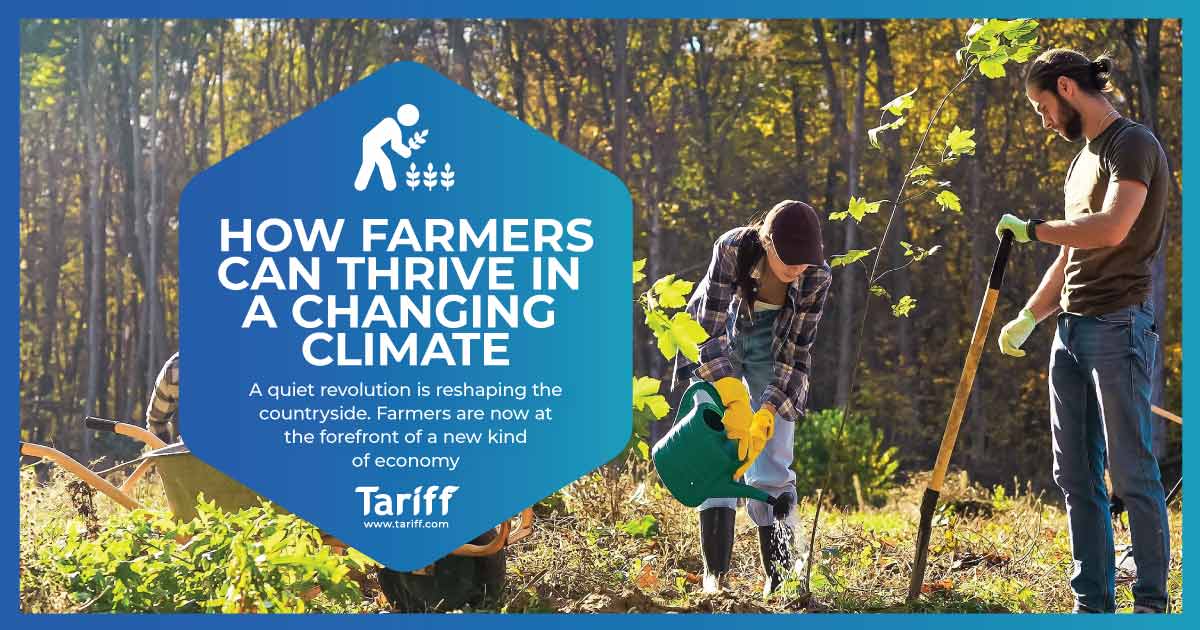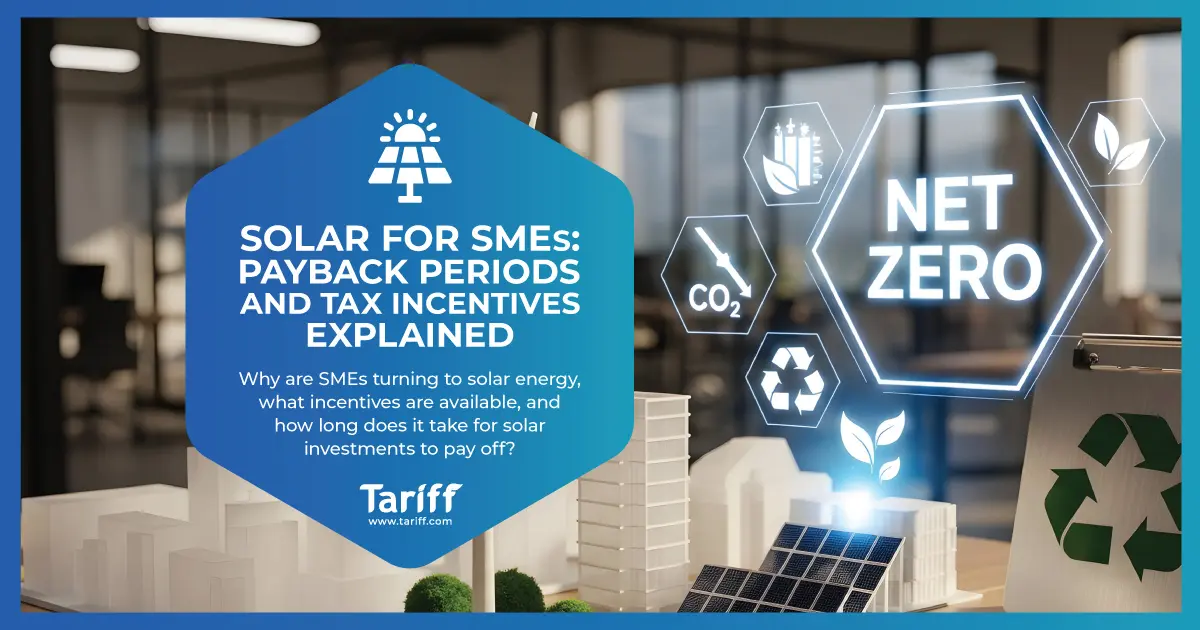How Does Your Business Affect the Environment?
In today’s rapidly evolving global landscape, businesses are increasingly recognised as pivotal players in addressing environmental issues. The intersection of business strategy and environmental impact has never been more critical. As climate change accelerates, sustainability and net-zero commitments are not just ethical imperatives but strategic necessities.
Understanding the internal and external factors of business environments is essential for companies aiming to align their operations with environmental sustainability.
This article delves into the multifaceted ways businesses influence the environment and offers insights into integrating sustainable practices into core business strategies.
The Environmental Impact of Business Operations

Energy Consumption and Emissions
Energy usage is a primary contributor to a company’s environmental footprint. Businesses consume significant amounts of electricity and gas, often derived from fossil fuels, leading to substantial greenhouse gas emissions. Transitioning to renewable energy sources, such as solar panels and hydropower, can significantly reduce this impact. Implementing energy-efficient technologies like LED lighting and advanced heating solutions further contributes to sustainability goals.
Transportation and Logistics

Employee commutes and business logistics are substantial sources of carbon emissions. Encouraging remote work, promoting public transportation, and investing in electric vehicle charging infrastructure can mitigate these effects. Moreover, optimizing supply chain logistics to reduce transportation distances and improve efficiency plays a crucial role in minimising environmental impact.
Supply Chain Sustainability
A company’s environmental responsibility extends beyond its immediate operations to its entire supply chain. Collaborating with suppliers who prioritise sustainability ensures that environmental considerations are integrated at every production stage. Tools like the Science Based Targets initiative (SBTi) provide frameworks for setting and achieving emission reduction goals across supply chains.
Resource Utilisation and Waste Management
The extraction and consumption of natural resources, such as water, minerals, and timber, can lead to environmental degradation. Implementing circular economy principle, reducing, reusing, and recycling materials, helps conserve resources and minimise waste. Proper waste management strategies, including recycling programs and responsible disposal methods, are essential for reducing a business’s ecological footprint.
Why Businesses Need to Take Action Against Climate Change
As we reach a critical point in our fight against climate change, businesses have a moral obligation to act now. The way we do business often prioritises short-term profits over long-term sustainability, exploiting natural resources, causing pollution and contributing to climate change with little thought for the future.
Beyond this moral obligation, businesses cannot escape the impact of climate change. As the effects of rising temperatures make themselves felt, businesses will also be affected by drastic weather conditions, dwindling natural resources and economic damage. Addressing climate change now will ultimately benefit businesses.
Factors Influencing Environmental Strategy
Internal Factors
Corporate Culture and Leadership: A company’s values and leadership commitment to sustainability significantly influence environmental initiatives. Embedding sustainability into the corporate culture encourages employee engagement and drives organisational change.
Operational Processes: Internal processes, including manufacturing methods and facility management, directly affect environmental performance. Regular audits and continuous improvement strategies can enhance efficiency and reduce environmental impact.
Financial Resources: Allocating budgets for sustainability projects, such as energy-efficient upgrades or sustainability certifications, is vital for implementing environmental strategies.
External Factors
Regulatory Environment: Government policies and regulations, such as environmental protection laws and emission standards, dictate compliance requirements. Staying informed about legislative changes ensures adherence and avoids potential penalties.
Market Dynamics: Consumer preferences are increasingly favouring environmentally responsible companies. Adapting to market demands by offering sustainable products and services can provide a competitive advantage.
Technological Advancements: Emerging technologies offer innovative solutions for environmental challenges. Investing in research and development can lead to breakthroughs in sustainable practices.
Societal Expectations: Public awareness and advocacy for environmental issues pressure businesses to act responsibly. Transparent communication about sustainability efforts builds trust and brand loyalty.
How Can Businesses Reduce Their Environmental Impact?
If your business is looking to reduce its impact on the planet, here are the first steps you can take towards greener ways of operating.
1)Go Paperless
Thanks to advancements in digital and electronic signature technology, businesses no longer need to rely on archaic paper-based methods to run their businesses; they can now keep everything digital and eliminate the need for printing, scanning and physical paperwork storage altogether.
With business operations and customer interactions moving increasingly online, eliminating paper-based processes from your business operations not only reduces paper waste and associated carbon emissions but also simultaneously improves efficiency, whilst also saving money on paper, postage and stationery, as well as on printing and scanning equipment.
2)Conserve Energy
Whether you’re optimising your processes to waste less energy or insulating your office building to retain heat, identifying and fixing energy drainers can help you to reduce your business’s carbon footprint, as well as save money on your energy bills.
There are many simple ways to save energy around the office. You can switch to LED bulbs that are 80% more efficient than halogens, install motion-sensor lights and reduce energy consumption by 35-45 percent, or simply turn down the heating by a degree or two. For businesses that don’t know where to start, carrying out an energy audit in your office can help point you in the right direction, highlighting areas that could be improved and providing practical tips to conserve energy.
3)Goodbye single-use plastics
We all know the devastating impacts that single-use plastics can have on our environment, especially the harm they can cause to marine life in our oceans and seas. Single-use plastics are a particular scourge on the planet; those plastic cups your employees or visitors use once can last for up to 50 years in a landfill.
Switching from single-use plastics to biodegradable alternatives like wood or bamboo is a great place to start but offering reusable branded items to your employees could be a great opportunity to cut waste and also advertise and promote your company.
4)Offer Remote working
As remote working became the standard for businesses across the UK during the pandemic, we saw many surprise benefits beyond containing the spread of the coronavirus. One of these things was a reduction in carbon emissions due to a significant decrease in commuting.
Indeed, it’s estimated that continuing to implement remote working practices post-coronavirus could eliminate 11.3 billion miles of commutes, equating to a significant two airports’ worth of emissions. By offering flexible and home working options as standard, your business could reduce employee commuting miles, saving on carbon emissions and lowering your carbon footprint.
5)Support Carbon Offsetting
The term carbon neutral is becoming increasingly popular in the business world, especially with the UK aiming to become carbon neutral by 2050. Even if your business does everything it should for the planet, it can still be difficult to reach net-zero emissions. This is where carbon offsetting comes in.
Whether you’re supporting projects directly, or simply purchasing carbon credits, offsetting your remaining emissions is the only way to become carbon neutral or net-zero emissions. For many businesses, getting started with carbon offsetting can be difficult. Thankfully, there is a range of carbon consultancy solutions available for businesses, like Tariff.com.
How Businesses Are Leading the Way on Climate and Sustainability

Isle of Man Initiatives
Local businesses on the Isle of Man are increasingly embracing sustainable strategies as part of their environmental responsibilities. Partnerships with organisations like the Isle of Man Chamber of Commerce and its Climate Change Programme are encouraging businesses to embed sustainability into their core operations. Through networking events, expert-led workshops, and tailored advice, businesses receive practical guidance on how to align with net-zero targets and meet growing environmental compliance requirements.
These local efforts reflect a broader shift in business strategy where environmental sustainability is not just a policy but a long-term investment in operational resilience. The Isle of Man Government’s Department for Enterprise is also actively promoting renewable energy solutions, low-carbon technologies, and climate innovation helping to position the island as a proactive leader in environmental change.
Global Examples
Across the globe, businesses are responding to increasing demands for accountability regarding their environmental impact. One notable example is the fashion industry, particularly within the European Union, which has faced mounting scrutiny over its role in textile waste and pollution. As a result, many fashion brands are transitioning toward circular economy models, emphasising reuse, repair, and recycling of garments. Companies like H&M and Patagonia have launched buy-back and repair programs, while luxury brands are investing in sustainable materials and transparent supply chains.
In the tech industry, giants like Apple and Google have committed to achieving net-zero emissions across their entire business models. Apple has pledged to make every product carbon neutral by 2030, incorporating recycled materials and renewable energy into their production processes. Meanwhile, Google has operated as a carbon-neutral company since 2007, and now aims to run entirely on carbon-free energy by 2030, a move that could set new benchmarks for corporate sustainability worldwide.
The automotive sector is also undergoing a seismic shift. Manufacturers such as Volvo, Ford, and Tesla are scaling up electric vehicle (EV) production and rethinking global supply chains to reduce their carbon footprint. These strategies align with international climate agreements like the Paris Accord, pushing industries to prioritize low-emission technologies and reduce dependency on fossil fuels.
Why Choose Tariff.com?
The environmental impact of business operations is a complex interplay of internal and external factors. By understanding and addressing these elements, companies can develop robust strategies that align with sustainability goals and respond to climate change challenges. Embracing environmental responsibility is not only beneficial for the planet but also enhances business resilience and competitiveness in an increasingly eco-conscious market.
How can Tariff help?
Transparent Service
Here at Tariff.com, we put transparency at the heart of all our energy services. We’re not affiliated with any single energy provider, so we’ll always shop around to find you the best deal on your green energy.
Industry Experts
We’ve pulled together an expert team of consultants, who can advise your business on anything from energy and going carbon neutral to security and IT. We use our experience and knowledge of the market to pass on great savings to you.
Empower Your Business
Beyond saving your business time and money, we aim to empower your business to get the most from your energy and chosen supplier. Whether that’s optimising energy usage, switching to green energy, or going carbon neutral, we’ll help you achieve your energy goals.


